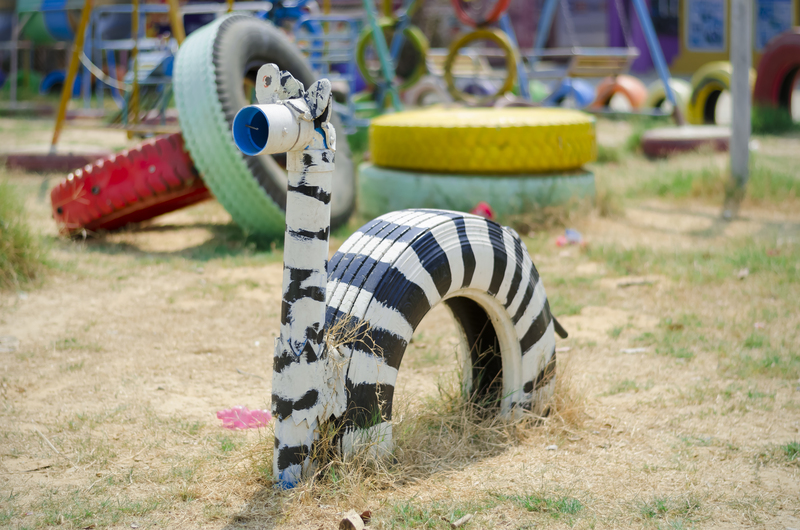Creative Strategies for Effective School Recycling
School recycling is more important than ever in our efforts to foster environmental sustainability and build eco-conscious habits in young people. Amidst rising environmental challenges, effective recycling in schools not only benefits the planet but also instills life-long sustainable behaviors in students. But recycling at school shouldn't be dull; exploring creative strategies makes participation engaging and educational for everyone involved.

Why Focus on School Recycling Programs?
Schools are bustling communities with high daily foot traffic and consumption of resources. By implementing innovative recycling initiatives, schools can:
- Reduce landfill waste significantly
- Model eco-friendly behaviors for students and staff
- Save costs through reuse and smart resource management
- Offer hands-on learning about environmental responsibility
Yet, many schools struggle with lackluster recycling rates due to outdated methods or low engagement. The good news is that with the right strategies, schools can transform their recycling efforts from basic compliance to true community impact.
Building the Foundation: The Basics of School Recycling
First, ensure your school recycling program has these key elements in place:
- Clearly marked recycling bins placed in accessible, high-traffic locations
- Educational signage illustrating what can and cannot be recycled
- Regular staff and student training on proper sorting
- Established partnerships with local recycling centers
Once the basics are established, it's time to introduce creative recycling strategies that boost engagement, learning, and consistent participation.
Innovative Approaches for School Recycling Success
1. Student-Led Recycling Committees
Inspire ownership and active participation by forming student-led "Green Teams" or environmental committees. These groups can:
- Monitor recycling bins daily/weekly for contamination
- Lead schoolwide recycling awareness campaigns
- Organize classroom visits to educate peers about effective waste separation
- Coordinate events such as "Zero-Waste Day" or "Recycling Awareness Month"
Tip: Appoint students from different grades to broaden the impact and encourage mentorship!
2. Gamify Recycling Challenges
Turn recycling into an exciting school-wide competition! Gamification leverages students' love for friendly rivalry and rewards.
- Track which class, grade, or house recycles the most each month
- Create point systems for correct recycling and upcycling projects
- Award prizes such as extra recess, a pizza party, or eco-certificates
- Establish a "Green Leaderboard" in the hallway or on school intranets
This approach teaches the value of teamwork and commitment in sustainable practices while making the recycling process fun!
3. Integrate Recycling into the Curriculum
Make school recycling relevant by linking it with classroom subjects:
- Introduce math lessons on waste reduction statistics
- Encourage research-based projects on environmental impact
- Assign creative writing prompts imagining a "zero waste" world
- Develop science experiments around decomposition and recycling cycles
By continuously reinforcing recycling through learning, students grasp its real-world applications and long-term benefits to communities.
4. Creative Arts and Upcycling Projects
Harness students' imagination with upcycling and art projects using recycled materials.
- Host recycled art competitions or gallery events
- Make costumes, instruments, or classroom decorations from plastic, cardboard, or paper waste
- Create bulletin boards or murals raising recycling awareness
- Collaborate with local artists on large-scale installations using recyclables
These projects encourage creativity, teamwork, and resourcefulness, while subtly weaving recycling awareness into school culture.
5. Real-Time Feedback and Smart Bins
Embrace technology to modernize your school recycling program:
- Install "smart bins" that track usage, fill levels or even sort materials
- Share waste and recycling data on digital school dashboards
- Use QR codes on bins leading to short recycling quizzes or tips
- Provide instant feedback to classes for recycling improvements
Real-time data fosters friendly competition and motivates the whole community to track their environmental progress in a visible, dynamic way.
6. Involve the Entire School Community
For a truly effective recycling program, engage everyone--students, teachers, support staff, and families. Try these approaches:
- Send home recycling guides and pledges for families to sign
- Host community recycling drives for electronics, batteries, or textiles
- Collaborate with local businesses for recycling sponsorships or supplies
- Celebrate top recyclers or classes in school assemblies
School-wide involvement ensures sustainability over time and a broader environmental impact beyond the classroom walls.
Creative Recycling Event Ideas for Schools
1. Themed Recycling Weeks
Host a "Recycling Spirit Week" with dress-up days, trivia contests, and themed recycling drives (e.g., "Plastic-Free Tuesday", "Paperless Thursday").
2. Community Swap Meets
Encourage the reuse of school supplies, books, or uniforms with a "swap meet." Students learn about reducing consumption and share resources.
3. Zero Waste Lunch Competitions
Challenge classes to bring "zero-waste" packed lunches--using reusable containers, bags, bottles, and no single-use plastics. Track and reward the class with the least overall waste.
4. Eco-Fair or Green Expo
Invite local environmental groups, artists, and businesses for a school "green fair," showcasing recycling technologies, hands-on activities, and workshops.
5. E-Waste and Battery Collection Drives
Organize special drives for collecting electronics, batteries, or printer cartridges. Partner with certified recycling companies for safe disposal.
Enhancing Education and Awareness
At the heart of every successful school recycling strategy lies education and awareness. Here's how to build a culture of sustainability:
- Regularly update students on local and global waste issues in assemblies or newsletters
- Display infographics and posters highlighting recycling stats and environmental progress
- Host workshops on the lifecycle of materials and the circular economy
- Invite environmental speakers or former alumni who work in green jobs
Putting recycling facts and inspiring stories front and center can spark deeper curiosity and long-term habit building.
Measurement and Continuous Improvement
A creative school recycling plan needs regular evaluation. Use these tools to track success:
- Monthly waste audits--measure the amount and contamination of recyclables
- Surveys to gather student, teacher, and custodial feedback
- Track cost savings, reductions in landfill waste, and improvements over time
- Align recycling goals with district or local government sustainability benchmarks
Celebrate progress and set new, higher goals to keep the momentum alive!
Overcoming Common School Recycling Challenges
Even the most well-thought-out recycling strategies face obstacles in schools, such as:
- Lack of student engagement over time
- Recycling contamination from improper sorting
- Staff or teacher buy-in
- Logistical barriers (e.g. limited bins or pick-ups)
Overcoming these challenges takes ongoing communication, flexibility, and involving multiple perspectives:
- Rotate new roles and leadership within student recycling teams
- Provide regular training or fun "refresher" sessions
- Make recycling visible and rewarding for staff as well as students
- Partner with local waste companies for support and education
The Role of Technology in School Recycling Innovation
As technology becomes more accessible, schools can utilize it to make recycling more efficient and interactive:
- Use classroom tablets or smartphones for recycling-related games and quizzes
- Share recycling campaign updates on school social media pages
- Install apps that remind students about recycling tasks or news
- Leverage digital tools for data collection and sharing schoolwide progress
By blending technology with creative recycling strategies, schools build a forward-thinking sustainability culture.

Long-Term Impact: Habits Beyond School Walls
The ultimate goal of school recycling programs is to nurture habits that last far past graduation. Students who learn to value waste reduction, responsible resource use, and creative problem solving are more likely to:
- Continue recycling at home and in future workplaces
- Inspire their families and communities
- Consider careers in environmental fields
- Advocate for sustainable practices in society
Thus, while the focus is often on what happens within the school building, these creative recycling strategies ripple outward, creating lifelong change agents for the environment.
Conclusion: Unlocking the Power of Creativity in School Recycling
In summary, effective school recycling isn't just about putting out more bins--it's about energizing the entire school community through creativity, education, and engagement.
- Empower students through leadership and school-wide challenges
- Infuse lessons across the curriculum that reinforce recycling's importance
- Celebrate innovation, teamwork, and progress every step of the way
With these creative recycling strategies in place, your school will be well on its way to reducing waste, saving resources, and preparing young minds for a more sustainable future.
Ready to bring innovative recycling to your school? Start with a single idea and watch enthusiasm--and greener habits--spread throughout your school community!